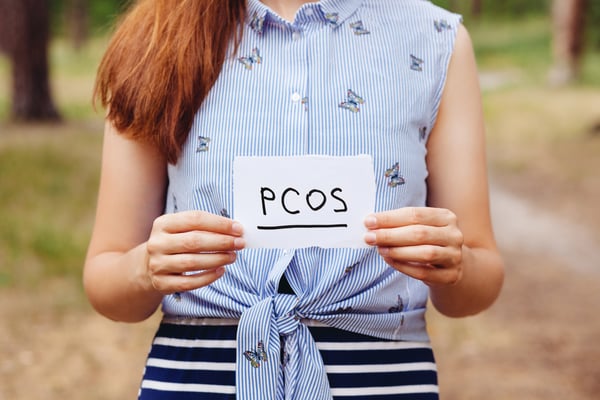Research shows that approximately 50% of women who have Polycystic Ovary Syndrome go undiagnosed. September marks PCOS Awareness Month, which aims to educate women and healthcare professionals about symptoms, causes, and how to manage the condition. 
How Polycystic Ovary Syndrome can affect your life?
With 1 in 10 women affected by this condition, it is one of the most common hormonal disorders in the United States. Affecting the ovaries, it is the leading cause of female infertility and often generates low self-esteem among women.
Though each experience is different, women have been known to suffer from depression (as much as 40% of diagnosed women) and self-esteem issues after diagnosis due to bodily changes and increased chances of infertility.
Aside from causing infertility, links have been found to other diseases such as diabetes, heart disease, sleep apnea, obesity, and endometrial cancer.
Symptoms
PCOS can often go undetected for some time, as the symptoms are frequently attributed to other health conditions. Irregular or missed periods are the first tell-tale signs, in particular shortly after puberty.
Other symptoms include:
- Weight gain/trouble losing weight
- Acne
- Unwanted hair growth
- Thinning hair on the head
- Dark patches on the skin
- Ovarian cysts
There are three main hormones that PCOS can be attributed to: insulin, androgens, and progesterone. Insulin allows the body to absorb glucose into cells to produce energy, but PCOS affects this process and can cause more androgens to be produced. The increased production of androgens (“male hormones”) is responsible for symptoms such as acne, unwanted hair, and together with the lack of progesterone hormones produced, is also a reason for irregular periods.
The cause for PCOS is yet to be discovered, but doctors believe that it is linked to genetics, insulin resistance, and increased levels of inflammation. Discussing your family's medical background and symptoms can help early detection. As there is no single test to get a diagnosis, the following tests help determine if you have PCOS:
- Blood tests
- Pelvic exam
- Sonogram
Ways to manage PCOS
Maintaining a healthy diet and active lifestyle should be something everyone strives for on a day to day basis. And without a known cure for PCOS, treatment starts there. Regular exercise and daily physical movement help manage insulin abnormalities, irregular menstrual periods, and other symptoms.
Diet
What you eat can have a significant impact on your overall health, and for those diagnosed with PCOS, there are certain foods that help mitigate symptoms and combat insulin resistance. Some examples of what you should include in your diet are:
High-fiber foods:
- Broccoli
- Almonds
- Berries
- Pumpkin
Lean proteins:
- Fish
- Chicken
- Tofu
Anti-inflammatory foods and spices:
- Turmeric
- Olive oil
- Spinach
Avoiding sugary snacks and drinks as well as foods high in refined carbohydrates is recommended. Yes, this means most flour-based foods are off the table, but luckily, there are great alternatives available such as swapping out regular pizza crust for a cauliflower crust or using spiralized zucchini instead of regular noodles in your favorite pasta dish.
Medications
Birth control pills, patches, and the vaginal ring can often help regulate periods and treat physical symptoms, such as acne and hair growth. Make sure to discuss treatment options with your physician to get the best results.
Consult Voyage Healthcare
If you or someone you know is presenting any of these symptoms, make an appointment with your Voyage Healthcare provider today.




Comments